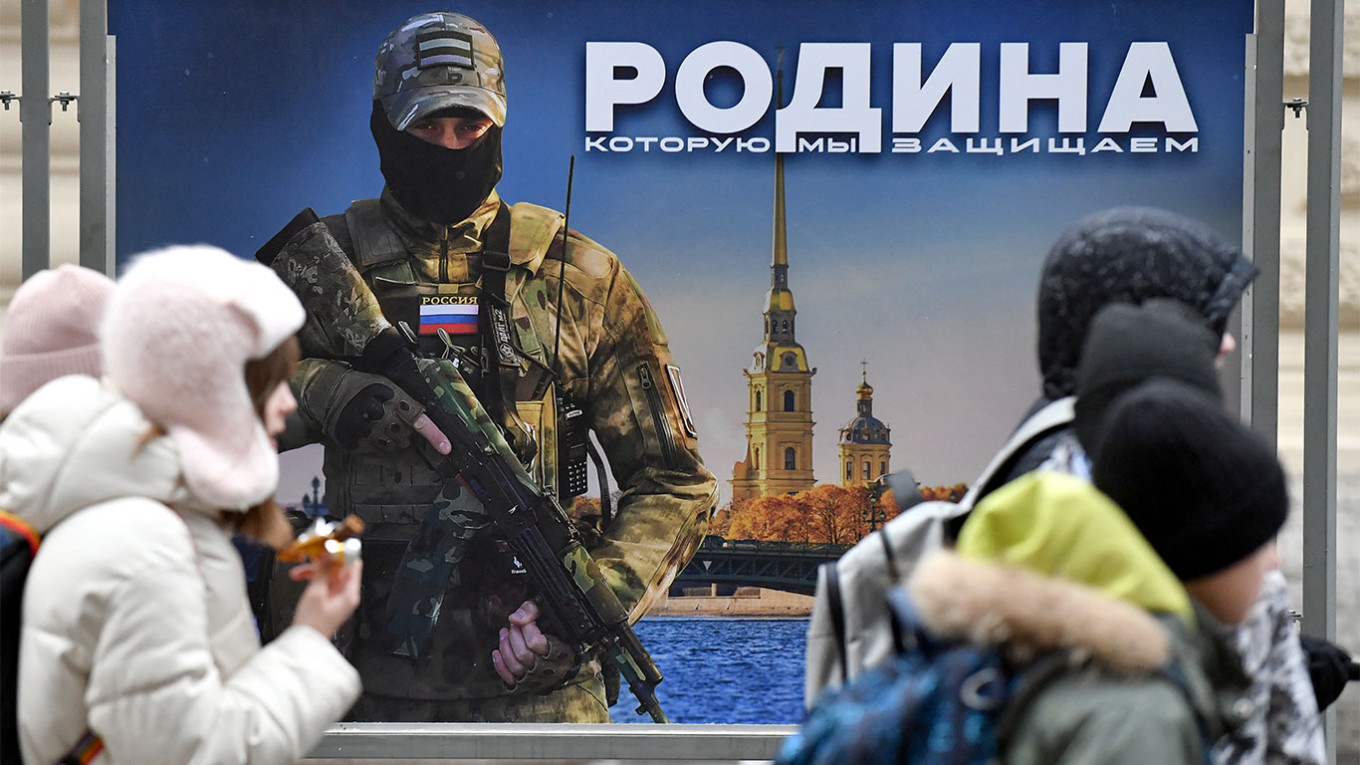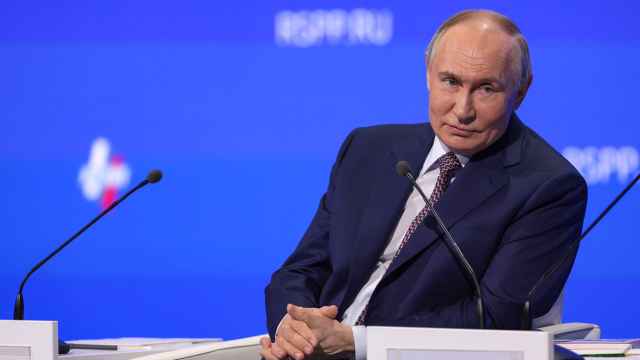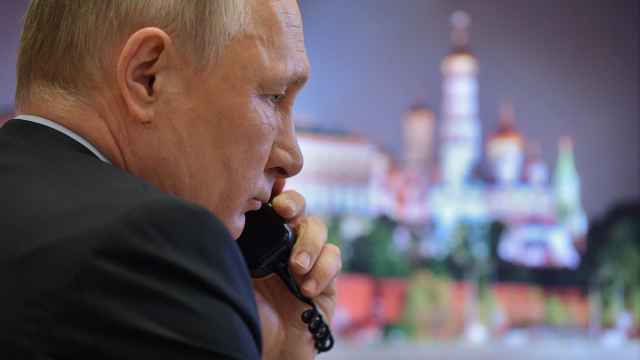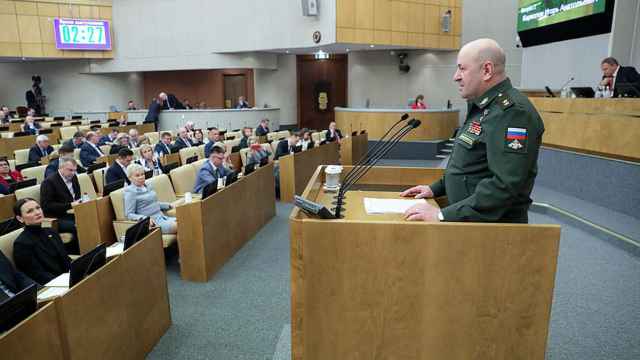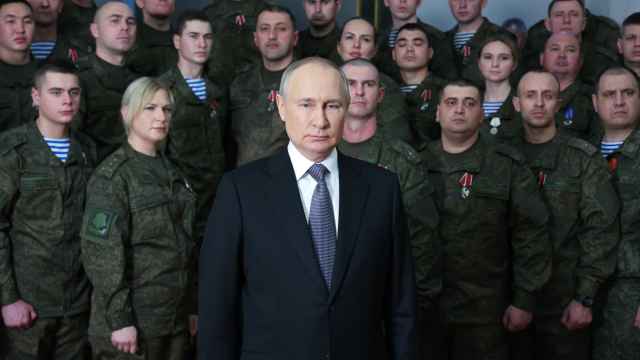While most members of Russia's political and business elite have come to terms with the invasion of Ukraine one year in, some are frustrated by the Kremlin’s apparent inability to act more forcefully against Kyiv — and others said the mood is downbeat.
The Moscow Times spoke with more than a dozen top Russian officials ahead of President Vladimir Putin’s first wartime state-of-the-nation address Tuesday and the one-year anniversary of the Ukraine invasion on Friday to gauge the mood in the Russian capital as the country appears increasingly bogged down in a long conflict.
"To make a long story short, everyone has got used to it. It’s possible to live,” a senior figure in the pro-Kremlin United Russia party told The Moscow Times.
“The shock is gone. There is no going back. We have to win."
The mood among the elite has changed significantly since the start of the war, according to those who spoke to The Moscow Times. All of them requested anonymity to speak freely.
Following initial shock, the majority of those interviewed have come to accept the war. Although there are some who fear the Kremlin is not acting decisively enough and there are those who believe attacking Ukraine was a mistake or who are exhausted by the workload.
When the invasion began, the United Russia official said he was saddened to learn that vacations at European resorts would no longer be possible.
But he said he enjoyed a holiday in November to India with his family.
"I'm trying to remember what I was deprived of and what I'm missing. Nothing comes to mind,” he quipped.
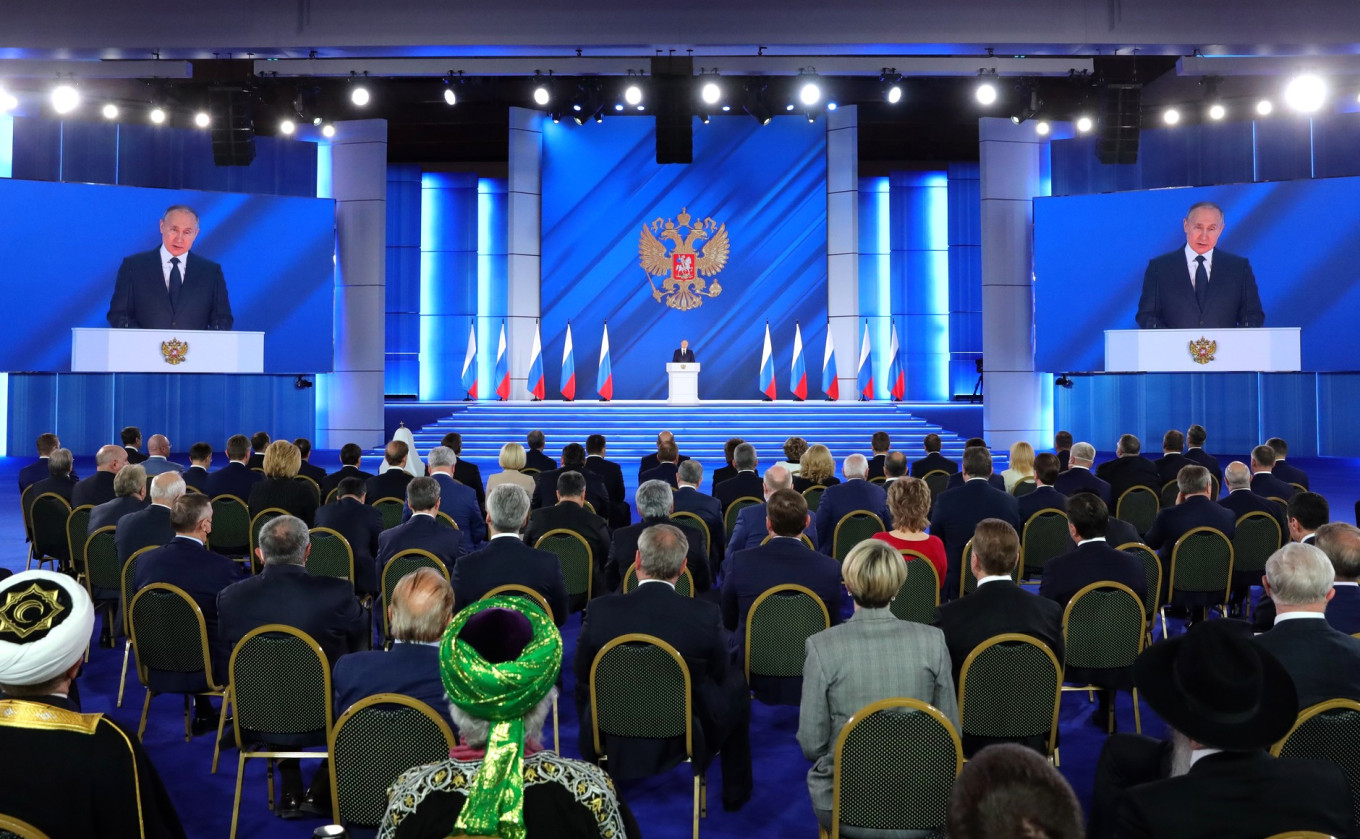
“Voluntarily or involuntarily, when Russia is surrounded by hostile countries every member of the elite is undergoing a process of internal reassessment,” said a Kremlin official.
"It will no longer be possible to… go on vacation to Monaco or live quietly in a villa in Spain, sometimes returning to Moscow for a stroll through the center and popping into Louis Vuitton. There will be no going back to that for decades to come. Most people understand that," the official said.
On the eve of the anniversary of the Feb. 24 invasion of Ukraine, Putin will address Russia’s Federal Assembly, composed of Duma deputies, members of the Federation Council and other officials. This year, military officials involved in the invasion will also be in attendance.
The Kremlin last year canceled the address, as well as Putin’s annual press conference and televised Q&A session, making this Russia’s first major set piece political event since tanks rolled across the border into Ukraine.
Putin's last state-of-the-nation speech was in April, 2021.
The fighting in Ukraine has seen the emergence of a section of the elite that is pushing for the Kremlin to pursue an even more hardline approach.
These conservatives are apparently frustrated at how Russia has so far carried out the military operation in Ukraine, with few lasting victories.
"Are we at war or not? If so, why are we so easy on Ukraine's arms deliveries, the visit of [U.S. President Joe] Biden and other politicians? Where's the tough reaction?" a senior Kremlin official said in a conversation with The Moscow Times.
Another senior Kremlin official said Biden's visit to Kyiv on the eve of Putin's speech is an escalation and an attempt to influence the Russian president.
"The problem is that we are indecisive, inconsistent and the leader can't tell us what to do," a former Kremlin official told The Moscow Times.
All of this, he said, is complicated by the fact that, in a year of war, there have been no obvious political or military achievements for Russia.
"There are no military victories. We didn't answer for the [attack on the] Crimean bridge or the destruction of the Nord Stream pipelines," he said.
As a result, there has been much speculation about the content of Putin’s speech Tuesday, with many expecting a major announcement of a new phase in the war.
A Kremlin spokesperson reportedly said last week that the president will address the progress of the military operation in Ukraine, the international situation and "Russia's development prospects."
"It should also be the beginning of Putin's election campaign," a high-ranking official in the Russian establishment told The Moscow Times, referring to presidential elections that are due to take place next year.
"Obviously, Putin will build [his re-election] campaign on patriotism and traditional values, but with this situation at the front it won't be easy,” said a Kremlin official familiar with the preparations for the speech.
For technocratic officials in the Russian government, the year since the invasion has been a struggle to prevent economic collapse amid international isolation, the demands of a wartime economy and Western sanctions.
The general mood is generally bleak, said a source close to the cabinet.
"Everyone thinks that the authorities are stubborn,” said a source close to the government who personally knows Prime Minister Mikhail Mishustin.
“There is a large group in power who believe that victory is needed and that is all. At the same time, they can't explain what the victory is, except for reaching Kyiv."
But most government officials and top business executives, according to the government source, are interested in a peace agreement as soon as possible.
"The general mood overall is negative, everyone's tired," he said.
A Message from The Moscow Times:
Dear readers,
We are facing unprecedented challenges. Russia's Prosecutor General's Office has designated The Moscow Times as an "undesirable" organization, criminalizing our work and putting our staff at risk of prosecution. This follows our earlier unjust labeling as a "foreign agent."
These actions are direct attempts to silence independent journalism in Russia. The authorities claim our work "discredits the decisions of the Russian leadership." We see things differently: we strive to provide accurate, unbiased reporting on Russia.
We, the journalists of The Moscow Times, refuse to be silenced. But to continue our work, we need your help.
Your support, no matter how small, makes a world of difference. If you can, please support us monthly starting from just $2. It's quick to set up, and every contribution makes a significant impact.
By supporting The Moscow Times, you're defending open, independent journalism in the face of repression. Thank you for standing with us.
Remind me later.



